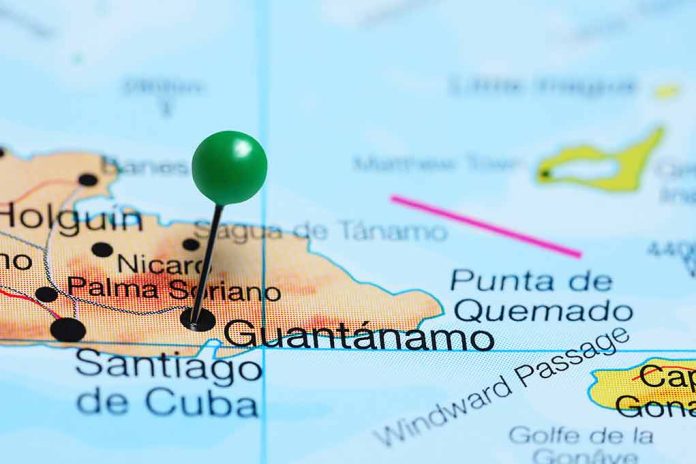
Cuba’s energy crisis escalated with tragic consequences amid the devastation of Hurricane Oscar, leaving healthcare, education, and daily life in chaos.
At a Glance
- A 13-year-old girl in Havana died after her insulin spoiled due to blackouts.
- Blackouts are the worst in recent history, disrupting healthcare and education systems.
- Hurricane Oscar has intensified the crisis, causing deaths and widespread damage.
- Cuban government blames U.S. embargo while protests grow against longstanding mismanagement.
Healthcare Impact and Humanitarian Concerns
Cuba’s healthcare system is buckling under the weight of an unprecedented energy crisis, compounded by the recent onslaught of Hurricane Oscar. The tragic death of a 13-year-old diabetic girl in Havana, caused by the spoilage of her insulin during a blackout, underscores the grave risks facing Cubans who rely on electricity-dependent medical treatments.
As hospitals struggle with failing generators, essential services like dialysis are jeopardized. The Cuban government had to implement emergency measures, including the suspension of classes and non-essential work, in a desperate bid to conserve power. Schools and professional spheres are paralyzed, leaving the nation on edge as resources dwindle.
Cuba's capital is facing massive blackouts and protests after Hurricane Oscar left six dead and worsened the nation's energy crisis. https://t.co/pdF21CmbNv
— euronews (@euronews) October 22, 2024
Hurricane Oscar: A Devastating Blow
Hurricane Oscar has further exacerbated Cuba’s power crisis, leaving significant loss and destruction in its wake. With seven fatalities reported, communities face isolation and devastation. Havana and other urban areas witness growing unrest as residents protest the government’s handling of the situation.
“We’re not going to allow any vandalism or let anyone disturb people’s tranquility.” – President Miguel Díaz-Canel
Citizens in places like Santos Suárez have resorted to banging pots and pans in protest, expressing their desperation through public demonstrations. Hurricane Oscar’s aftermath has forced a national conversation on energy policy and governance, while external assistance is being explored from nations like Mexico, Colombia, Venezuela, and Russia.
Many Cubans waited in anguish Sunday as electricity on much of the island had yet to be restored days after an island-wide blackout.https://t.co/ZoTbHeg0ws
— KATU News (@KATUNews) October 20, 2024
Economic and Social Strain
The ongoing energy shortages highlight the larger economic challenges Cuba faces. With power production unable to meet demand—running only at about 700 megawatts versus the required 3 gigawatts—the island nation is experiencing its worst blackout since Hurricane Ian in 2022. Protests have erupted, fueled by widespread dissatisfaction and calls for change.
The Cuban government attributes its economic woes to the U.S. trade embargo, alleging that external pressures exacerbate internal challenges. However, critics argue that long-term mismanagement and a reluctance to adapt energy strategies have compounded the nation’s struggles. As observed by Karine Jean-Pierre, “long-term mismanagement of its economic policy and resources has certainly increased the hardship of people in Cuba.”
Sources
1. 13-year-old girl dies from insulin deficiency during blackout in Cuba
2. Cuba: Hurricane Oscar causes havoc amid massive power outage in Havana
3. Cuba fights to recover from nationwide blackout and storm that killed six









